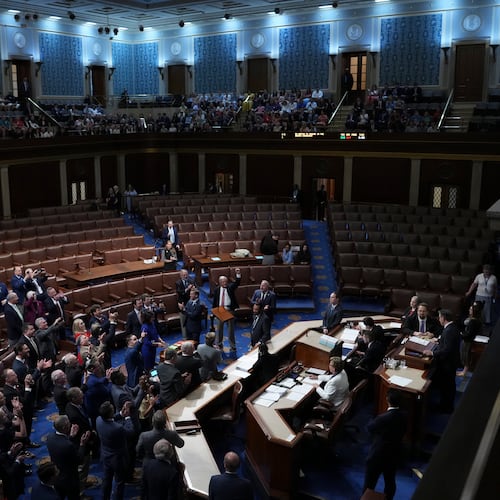Navigating the trials of international trade barriers is akin to “watching a cow poke its head through a sharp barbwire fence and struggle to get that next piece of greenery,” said John Taylor, President of T-Tech Inc., a leading manufacturer of printed circuit board prototyping systems.
Located in Norcross, with 15 employees, T-Tech opened its doors in 1983 and started exporting in 1988. Despite the cumbersome trade process, exports now account for approximately 60 percent of this small firm’s gross sales.
With 95 percent of the purchasing market outside the U.S., small businesses like T-Tech understand the vital importance of opening new markets in order to compete in the global marketplace.
“Any area of the world that is becoming tech savvy is a potential market for us. Right now we export to over 46 different countries — including Colombia where the U.S. is currently discussing a free trade agreement.
“Opening the doors to free trade in Colombia and eliminating the burdensome tariffs would be an enormous asset to my business. And more exports equal the ability to create more jobs,” explained Taylor.
T-Tech is just one example out of the thousands of American small businesses that continually deal with difficult trade barriers.
In fact, 97 percent of identified U.S. exporters are small businesses — yet that only represents a small fraction of those who could compete globally if trade barriers and high tariffs were reduced. Most small firms lack the resources and capital to navigate through trade barriers and as a result, many simply do not export.
This is why passing the pending free trade agreements with Colombia, Panama and Korea is critical. Trade agreements with all three countries were concluded in 2007; however, no congressional action has been taken.
Passing the agreements is a surefire way to spur job creation, spark long-term growth in our economy and ensure that America remains competitive in the global marketplace — all without one dime of new government spending.
But we must act now. While the Obama administration continues to hold the agreements, our global competitors are aggressively moving forward with similar free trade agreements. In July, the Colombia-Canada and European Union-Korea free trade agreements will go into effect, placing American small businesses at a competitive disadvantage if the pending U.S. agreements are not passed.
As chairman of the House Small Business Committee, I have heard from dozens of small business owners who are counting on the three trade agreements to expand their businesses.
It would be damaging to not pass the agreements before July and cause small businesses and farmers to lose more market share to foreign competitors and opportunities to create quality American jobs.
The U.S. International Trade Commission estimates that the three trade agreements combined would increase U.S. exports by $13 billion — and for every $1 billion in U.S. exports, an estimated 6,000 jobs are created.
In 2010 alone, American exports supported nearly 10 million jobs, including an estimated 4 million for small businesses. Additionally, the U.S. Chamber of Commerce reports that jobs supported by exports pay as much as 18 percent higher than the national average.
We must do more to eliminate the uncertainty and obstacles plaguing our job creators. And approving the stalled free trade agreements to provide a level playing field would be a great first step.
U.S. Rep. Sam Graves, R-Mo., is chairman of the Committee on Small Business in the U.S. House of Representatives.
About the Author
Keep Reading
The Latest
Featured


